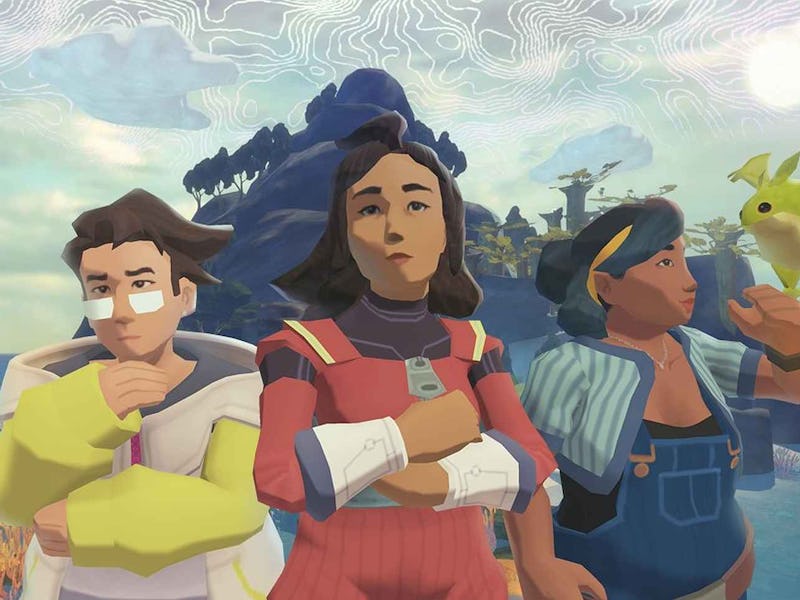One Year Later, Sephonie Is Still the Best Platformer in Recent Memory
Island in the sun.

There was once a time when 3D puzzle platformers were the hottest genre around. That has diminished in the past two decades, but in 2022 one game brought the genre back with a modern twist. Sephonie uses traditional puzzle platforming mixed with the storytelling of the modern indie scene to great effect. The story of three scientists on a mysterious island exploring their memories is emotionally deep while remaining linked to the gameplay loop at its heart. A year after its release it still feels exceptional and deserving of more attention.
Memories are not set in stone. They are malleable things that shift over time. The details we choose to focus on and the emotions that feel strong in relation to these memories drive how we remember them over time. The very architecture and structure of memory become something impossible over time. The same thing can be said of the titular island of Sephonie.
The island is the subject of scientists Amy Lim, Riyou Hayashi, and Ing-wen Lin’s research. They begin on the surface, where things appear as you would expect. But the game soon sends the three researchers and the player underground into the extensive cave systems of Sephonie island. These landscapes appear more alien, and platforming across cavernous gaps requires patience and skill. Soon the player navigates these mysterious caves until they stumble upon something familiar, yet even more perplexing— a memory.
Sephonie Island is not a dead thing, it is a living breathing organism that feels the presence of those on it and makes a mental connection with the researchers. While Sephonie begins to bleed into the scientist, the minds and memories of the scientists bleed into the island’s caverns. This leads to the caverns taking the shape of important memories in each character's life, just a little off. You will have to help protagonists literally retread their most traumatic and important memories, such as a representation of the skyscrapers of Tokyo.
Revisiting and confronting your construction of the past can feel impossible. Like it is a foreign place requiring you to claw your way through. Sephonie makes this feeling take form in the platforming challenges that the level requires. The scientists struggle to make their way through mentally and physically just as you struggle to help guide them.
Sephonie’s disparate parts are as interconnected as Sephonie Island.
The gameplay and narrative connection is a reflection of how Sephonie Island is connected from its surface to its deepest depths. The game itself centers on this theme of connection as well as the loneliness that comes from a lack of connection. All three scientists share Tawainese ancestry, and each has a contentious relationship with it. Despite attempts to reach out and connect and their shared links sometimes they fall short, just as you can miss a jump across a great gap on the Island.
All of this surrealist platforming and storytelling feels achingly personal yet universally understandable. It confronts the idea of national pride and shame amidst globalization and the complex feelings that come with seeking to keep or cut these connections.
Sephonie shifts like a memory over time as you play. While the focus is platforming the game also includes a Tetris-like puzzle as well as long digressions into text adventure or photo collage perusing. It does not limit itself to one form but molds itself into a new shape when called for. Yet despite all of these seemingly disparate absurd parts, everything is connected, like Sephonie island itself.
A year after its release the memory of Sephonie has already begun to shift in my mind, but the memory remains positive. However, the most trustworthy account is from the time of its release. Inverse’s own 10/10 review said it best, writing that Sephonie’s “mastery of familiar gameplay tropes ties into one of the best video game stories ever created.”